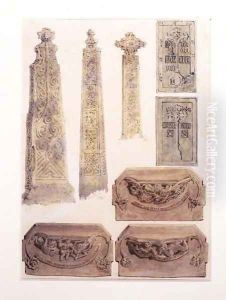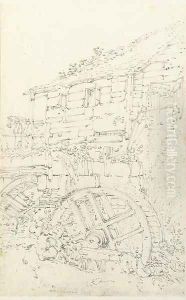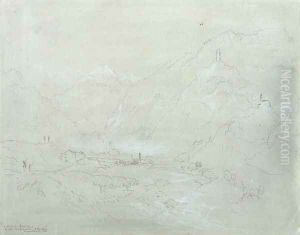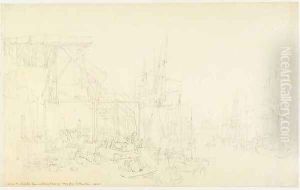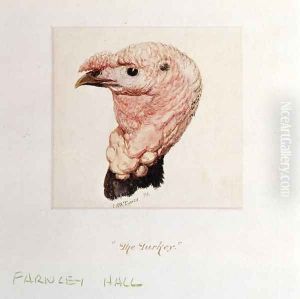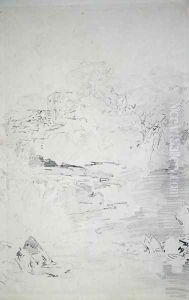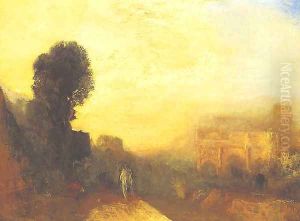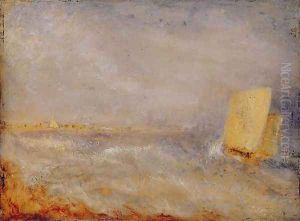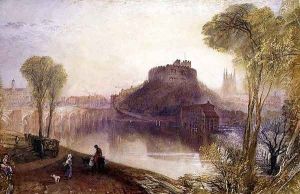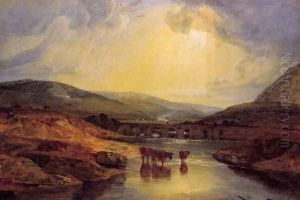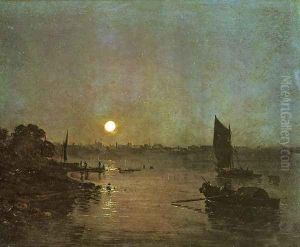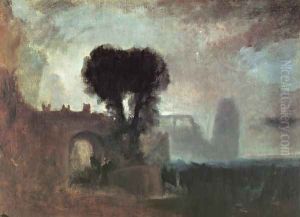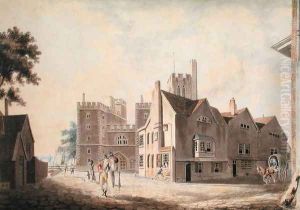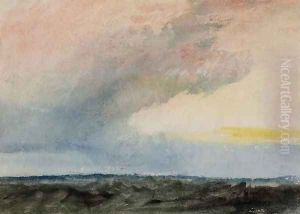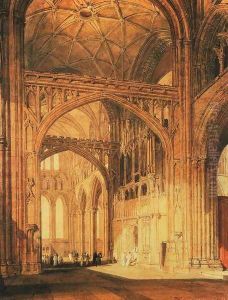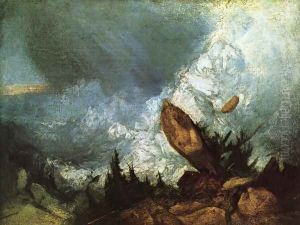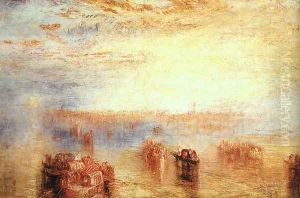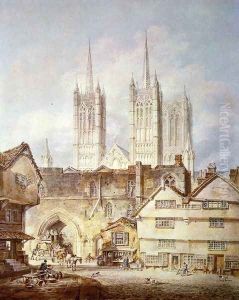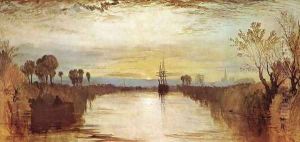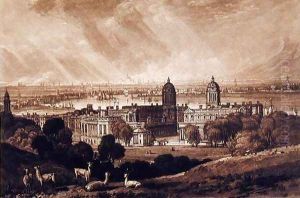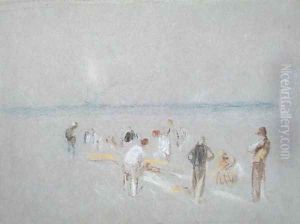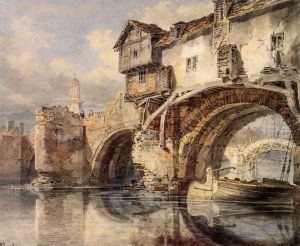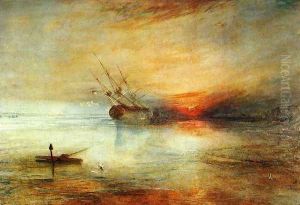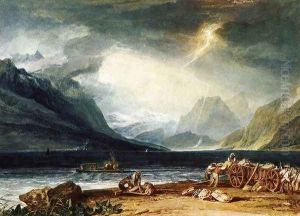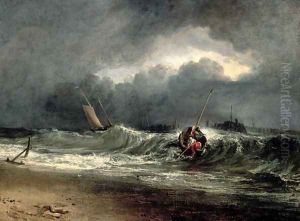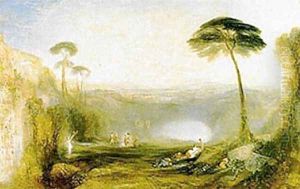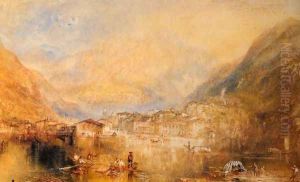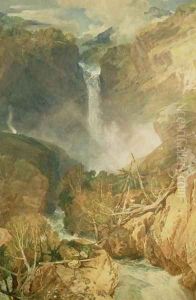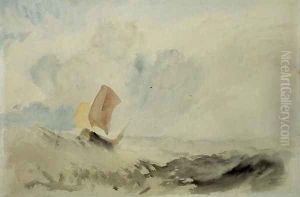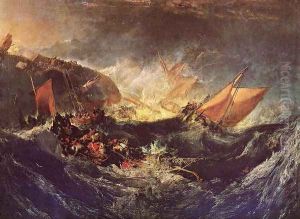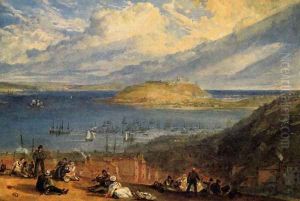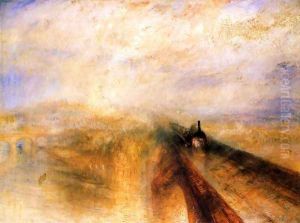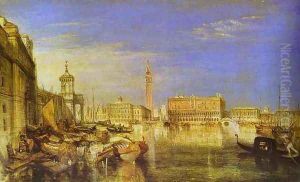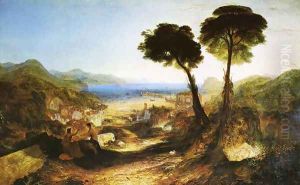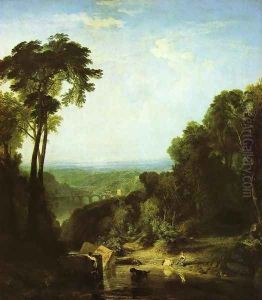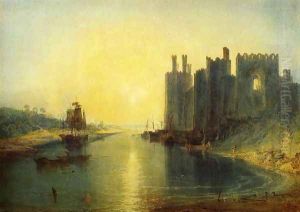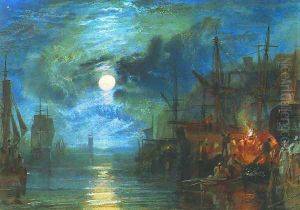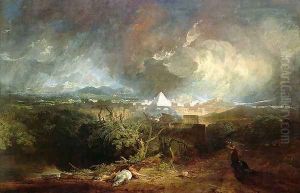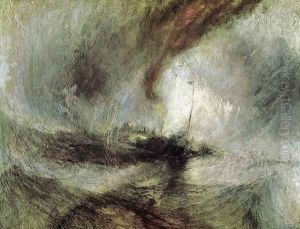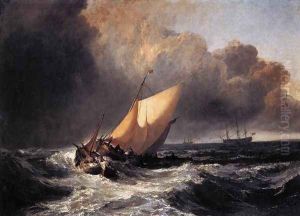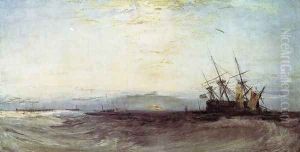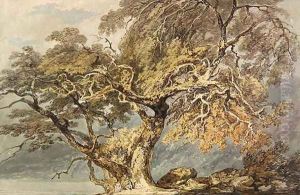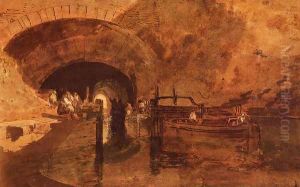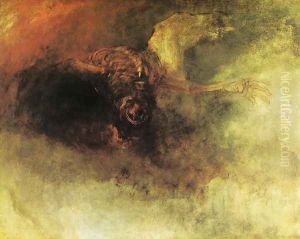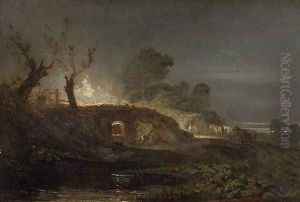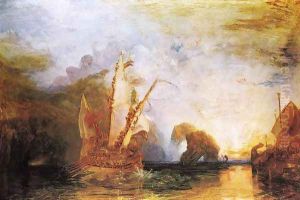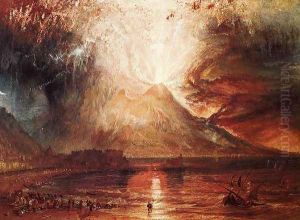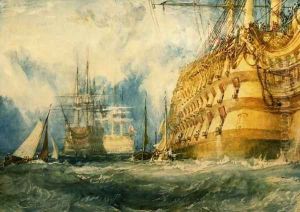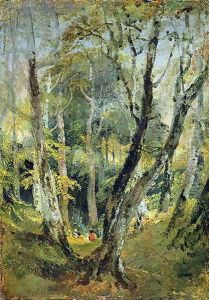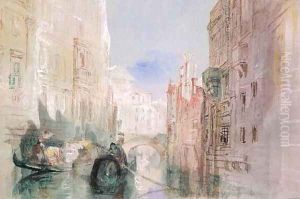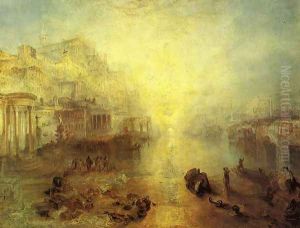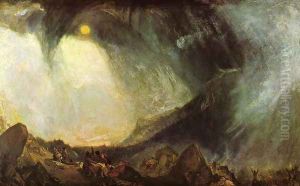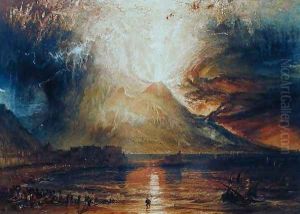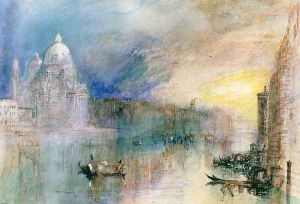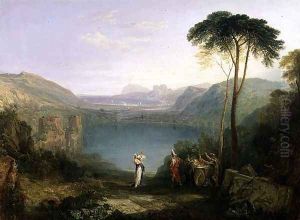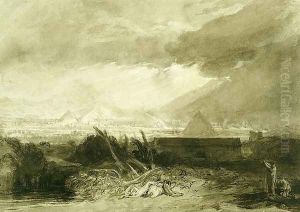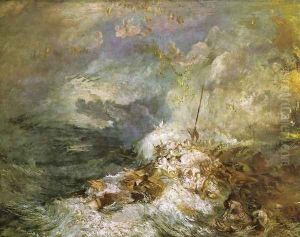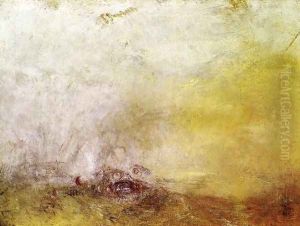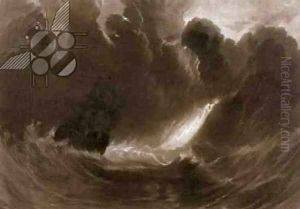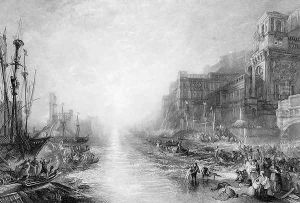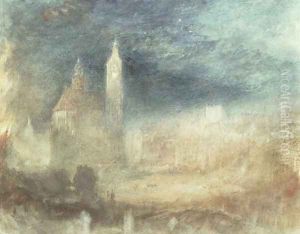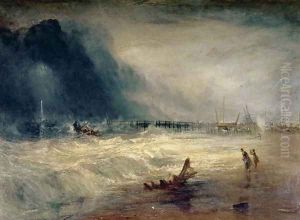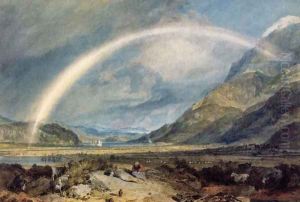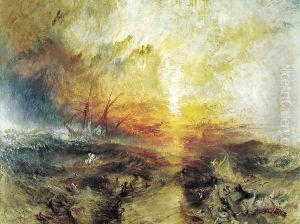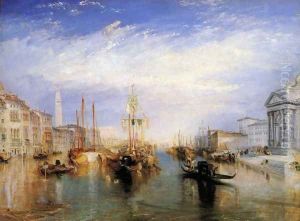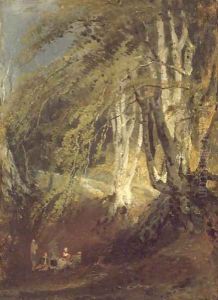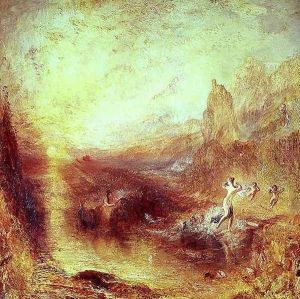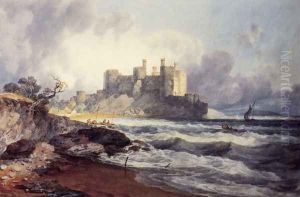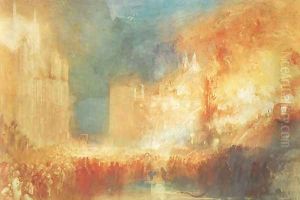Joseph Mallord William Turner Paintings
Joseph Mallord William Turner, widely known as J. M. W. Turner, was an influential English Romantic painter, watercolorist, and printmaker, born on April 23, 1775, in Covent Garden, London, England. Recognized for his expressive colorization, imaginative landscapes, and turbulent marine paintings, Turner is often regarded as the painter who laid the groundwork for Impressionism, although he maintained a strong allegiance to landscape painting during his career. His work is characterized by a fascination with light, atmospheric effects, and the sublime aspects of nature.
Turner showed prodigious talent from a young age. He was admitted to the Royal Academy of Art schools in 1789 when he was only 14 years old, and he exhibited his first watercolor there a year later. By the early 1790s, he was already enjoying commercial success. He achieved early prominence with his topographical watercolors and historical landscapes, which often incorporated dramatic lighting and effects of weather.
Throughout his career, Turner traveled extensively across Europe, including repeated visits to Italy, France, and Switzerland, which inspired many of his later paintings. His works such as 'The Fighting Temeraire' (1839) and 'Rain, Steam and Speed - The Great Western Railway' (1844) reflect his interest in the industrial revolution and its implications on the natural world. Turner was also fascinated by the sea, as seen in his seascapes like 'The Slave Ship' (1840), which is both a masterful display of his ability to portray light and a powerful condemnation of the transatlantic slave trade.
Turner was an eccentric and reclusive figure, with a personality that was said to be both reserved and choleric. Despite his success, he lived frugally and was known to be secretive about his art and techniques. He never married but had relationships with several women and fathered children. Toward the end of his life, Turner became more reclusive, and his work grew even more expressive and abstract, prefiguring modernism.
Turner died in his house in Cheyne Walk, Chelsea, on December 19, 1851. In his will, he left a large collection of his paintings to the British nation, and many of his works now reside in the Tate Britain and the National Gallery in London. Turner's legacy is profound; he is remembered as a master of British art and one of the greatest landscape painters of all time. The Turner Prize, established in his honor in 1984, is now one of the most prestigious awards in the contemporary art world.
